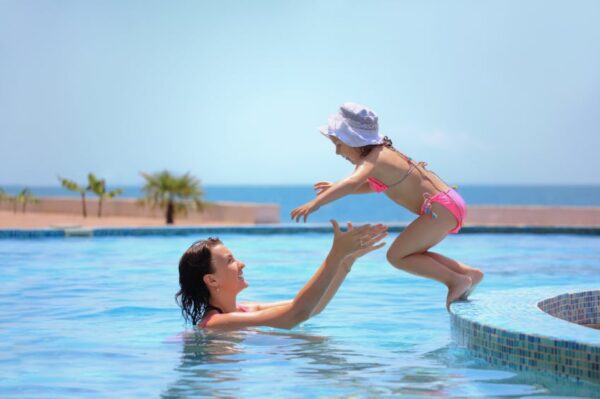
Drowning is the leading cause of injury-related death in children between the ages of one and four, according to the CDC. Swimming pools cause the greatest risk of submersion injury for children in this age group. When the unthinkable happens, and a child is the victim of a swimming pool accident, who is liable?
Whether the pool is located on public property, in a private club or a personal residence, liability for pool accident can fall on the owner of the pool. In most cases, premises liability rules will determine who can be held responsible for the accident and the subsequent damages.
Pool accidents and premises liability
When the accident occurs in a public pool or a pool owned by a private club, product liability and negligence may also be factors in a pool accident. Product liability may be cited if there was an actual problem with the pool or pool equipment that contributed to the accident. Negligence refers to an action that may have contributed to the accident. This could apply to someone that built or serviced the pool or employees of the pool that are responsible for ensuring the safety of patrons.
If premises liability is the rule that will apply, the law will next determine what type of “entrant” used the facility. Invitees are those that paid to use the pool, which is typically the case of a patron that visited a public pool. Licensees are usually referred to as guests that were invited to use a private pool. The third category of entrants is trespassers and they are not typically covered under premises liability laws. The possible exception might be a young child who got into the pool because there were not sufficient barriers to keep him safely out, such as fences or alarms.
Not all accidents at pools will be the responsibility of the pool owner. For example, if a guest decides to run along the slippery ledge of the pool and falls and injures himself, the pool owner would not likely be held liable for the accident. Likewise, if a visitor dove into the pool from an inappropriate location and became injures, the pool owner would probably not be held responsible for the guest’s injuries.
Responsibility of swimming pool owners
On the other hand, pool owners may be held responsible for accidents due to lack of proper safety equipment or improper upkeep of the pool. Failure to post proper warning signs about potential hazards or in some cases, failure to provide adequate supervision like lifeguards can also make the owners liable for some pool accidents.
Residential pool owners may also be held liable for accidents involving children if they fail to provide appropriate barriers around the pool to prevent access. The specific rules governing those barriers vary from state to state, but fences around the pools, gates with locks and alarm systems are all potential features that might be required under state law.
If you or someone you love is injured in a pool accident, the process of navigating the liability laws can be too complex to attempt on your own. Experienced attorneys can help determine if you are eligible to file a premises liability lawsuit against the pool owner or another third party.
The team at Hardy, Wolf & Downing has been representing victims of swimming pool accidents for more than two decades. If you would like a free assessment of your case and answers to pressing legal questions, contact our Maine accident lawyers at 1-800-INJURED.

